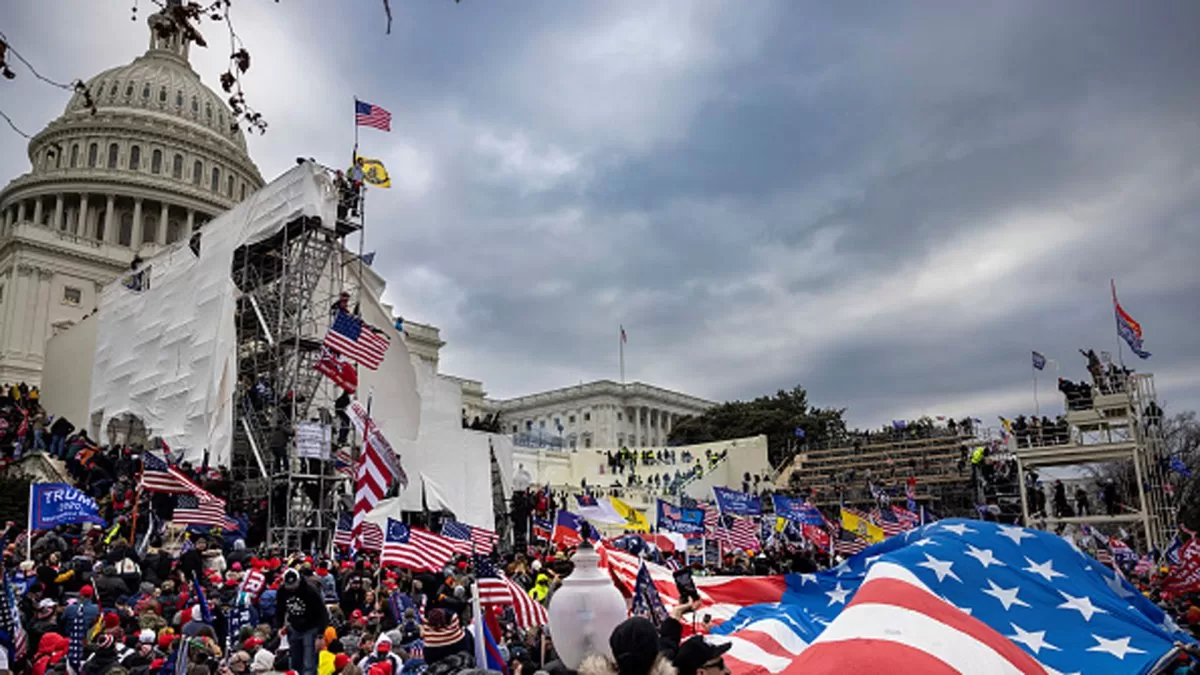A federal appeals court on Friday ordered a new sentence for a North Carolina man who pleaded guilty to misdemeanor charges in the Capitol riot, a ruling that could affect dozens of low-level cases in the mass prosecution on September 6. January 2021.
The appeals court in Washington ruled that James Little was wrongly sentenced on his misdemeanor conviction to both prison time and probation, which is the court-ordered monitoring of defendants who are not behind bars.
Little, who entered the Capitol but did not engage in any destruction or violence, pleaded guilty in 2021 to a charge that carries up to six months behind bars. He was sentenced last year to 60 days in prison followed by three years of probation.
But the 2-1 opinion of the US Court of Appeals for the DC Circuit established that probation and imprisonment “cannot be imposed as a single sentence” for a misdemeanor, adding that “there are separate options in the menu”. Judge Robert Wilkins, an appointee of former President Barack Obama, dissented.
The decision could overturn the January 6 sentences of dozens of defendants who received what is known as a “split sentence” for a less serious offense. More than 80 other Jan. 6 defendants have been sentenced to both prison and probation for the same misdemeanor as Little, according to an Associated Press analysis.
However, the practical effect may be limited, since almost all of them are likely to have served their prison terms long ago. Little’s lawyer had asked the appeals court to simply order an end to his probation supervision, since he has already served his 60 days behind bars.
An attorney for Little declined to comment Friday. The Justice Department could appeal the decision. A spokesman for the US attorney’s office in Washington said: “We are reviewing the Court’s ruling and will determine our next steps in accordance with the law.”
Some judges who have imposed such sentences in misdemeanor cases have stressed the need to monitor Jan. 6 defendants after they have served their sentence to prevent them from engaging in such conduct during the upcoming election. While on probation, defendants must register with a probation officer and follow certain conditions.
“The Court must not only punish Little for his conduct, but also ensure that he does not engage in similar conduct again during the next election,” the judge who sentenced Little, Royce Lamberth, wrote in a ruling last year.
“Some term of prison can serve the retributive objectives of the sentence. But only a long-term trial period is adequate to ensure that Little does not become an active participant in another riot,” she added.
On Jan. 6, 2021, Little went to President Donald Trump’s speech before the riots and then walked to the Capitol, where he punched other protesters and entered the Senate Gallery, according to court records. After leaving the Capitol, he and others prayed on the Capitol steps and sang “We’re Not Gonna Take It” by Twisted Sister, according to court documents.
More than 1,000 people have been charged with federal crimes related to the January 6 riots. More than 600 of them have pleaded guilty or been convicted after trials decided by a jury or judge. Around 600 have been sentenced, with more than half receiving prison terms ranging from three days to 18 years.





